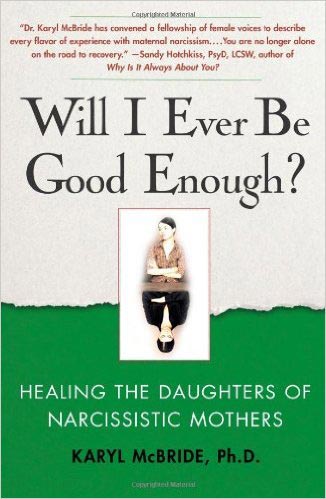A QUICK RUNDOWN ABOUT NARCISSISTS
What is a Narcissist?
To be diagnosed as a Narcissist is a complicated test usually performed by a psychologist or psychiatrist. Most people are not diagnosed.
The clinical diagnosis of NPD is based on the Diagnostic and Statistical Manual of Mental Disorders (DSM-5) criteria. Someone is diagnosed with NPD if they meet at least 5 of the 9 traits below:
Narcissism is on the spectrum – we all, as normal human beings have some sort of narcissism in us. It’s when narcissism causes hurt and pain in others is when we need to look at it and see how it affects us.
Usually, when you see/feel a Narcissist there is a co-dependent person not far behind.
When determining whether someone is a narcissist, most people make it more complicated than it needs to:
I use the duck test—that is, if it looks like a duck and quacks like a duck, it probably is a duck.

The following are some of the ways a narcissist can impact our lives
1. THEY ARE SUPERIOR AND ENTITLED
Superiority is one of the main indications you're dealing with a narcissist. Narcissists must be the best, absolutely correct, and the most competent. They do everything their way, own everything and control everyone.
2. ATTENTION – SEEKING
Narcissists constantly need attention and validation. They have an excessive need for admiration. They constantly try to elicit praise and approval from others to shore up their fragile egos, but no matter how much they're given, they always want more. They feel slighted, mistreated, depleted, and enraged when ignored.
3. PERFECTIONISM
Narcissists believe that everything should be perfect. They get upset when things don’t go their way. Perfectionism is impossible and often results in the narcissist feeling dissatisfied and miserable much of the time.
4. THEY ARE CONTROLLING
Narcissists want and demand to be in control, they love controlling everyone. and their sense of entitlement makes it seem logical to them that they should be in control of everything. They think they have done a lot for others, and everyone owes them.
5. IRRESPONSIBLE
Narcissists never want to be responsible unless everything goes their way. They often place all the blame and responsibility on someone else to maintain their own façade of perfection.
6. LACK OF BOUNDARIES
Narcissists believe that everything belongs to them, and everyone thinks and feels the same as they do. If they want something from you, they will go to great lengths to figure out how to get it. They feel shocked and insulted when told No!
7. LACK OF EMPATHY
Narcissists have very little ability to empathise or feel how the other person is feeling – even loved ones. To do so would mean they have to lose their power status. They have very little compassion because it is always about them. They have the lack to make you feel seen, validated, and understood.
8. EVERYTHING IS A THREAT
The lack of ability to correctly read body language is a common narcissist trait. They frequently misread subtle facial expressions and are typically biased toward interpreting facial expressions as negative.
9. ACK OF RESPECT
Narcissists have no respect for others' space, time, property, feelings etc. They simply don't care for anything.
10. EMOTIONAL REASONING
Narcissists make most of their decisions based on how they feel about something. They always look to something or someone outside themselves to solve their feelings and needs.
11. FEAR OF REJECTION
Narcissists are constantly afraid of being ridiculed, rejected, or wrong and often struggle trusting other people. They do not develop trust in the love of others.
12. CONSTANT ANXIETY
Most narcissists project their anxiety on to their closest ones, accusing them of being negative or unsupportive. As you feel worse, the narcissist feels better.
13. HARBOUR SHAME
Narcissists harbour a lot of shame and often bury their insecurities, fears and rejected traits that they are constantly on guard to hide from everyone, including themselves.
14. NO RESPONSIBILITY
Narcissists blame others for their faults. They never want to be responsible unless everything goes their way. They often deflect blame and responsibility on someone else to maintain their own façade of perfection.
15. UNABLE TO BE VULNERABLE
Narcissists don't have the capacity or the motivation to think about other people's feelings.
16. UNABLE TO COMMUNICATE
Because of their inability to understand feelings, their lack of empathy, and constant need for self-protection, narcissists can't truly love or connect emotionally with other people.
THIS IS NOT YOUR FAULT
YOU ARE NOT ALONE – GET IN TOUCH TODAY
There is a way to deal with this, things can change, we can put things in place to cope.
Healing the Daughters of Narcissistic Mothers!
Now You are not alone!!
Does any of the following apply to you?
Ros will guide you to overcome the trauma, fear, guilt and a weak sense of self to help you work through the trauma, step into your own confidence and create a life that is authentic and of your own personal choice and values.
Please do not hesitate to contact Ros on: 0422 120 114 now to discover how she may assist you with WIEBGE.


In the counselling session you will be addressing the 5 step recovery from Dr. McBride's book and you will also get the benefit of Ros's 10 years plus experience as a Counsellor along with new life skills. Ros will walk alongside you in the process of becoming a more confident, competent and stronger you.
Therapy consists of:
Become a more confident, competent and stronger you.
Contact Ros on: 0422 120 114 now to discover how she may assist you with WIEBGE.
